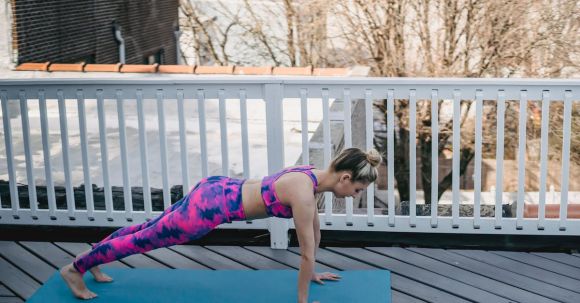Pilates is a popular exercise method that has gained popularity in recent years for its ability to strengthen the core and improve posture. Developed by Joseph Pilates in the early 20th century, this workout system focuses on controlled movements and breath control to build strength, flexibility, and endurance. Whether you are a beginner or an experienced fitness enthusiast, Pilates offers numerous benefits that can enhance your overall well-being.
Core Strength: The Foundation of Pilates
At the core of Pilates is the concept of core strength. The core muscles, including the abdominals, back, and pelvis, are the foundation of all movements in the body. A strong core improves stability, balance, and coordination, making everyday activities easier and reducing the risk of injury. By engaging the deep muscles of the core, Pilates works to strengthen and tone these muscles, leading to a more stable and functional body.
Improved Posture: Stand Tall and Proud
Many people suffer from poor posture due to modern sedentary lifestyles and lack of awareness. Pilates is an excellent way to correct and improve posture. The exercises in Pilates focus on aligning the spine and pelvis, promoting proper posture and body alignment. By strengthening the muscles that support the spine, Pilates helps to alleviate common postural issues such as rounded shoulders, forward head posture, and excessive curvature of the spine. With regular practice, you can achieve a taller, more confident posture.
Flexibility and Range of Motion: Bend, Stretch, and Extend
Flexibility is an essential component of overall fitness and can help prevent injuries and improve performance in other physical activities. Pilates incorporates a wide range of stretching and lengthening movements that target every major muscle group in the body. By increasing flexibility, Pilates promotes healthy joint mobility and allows for a greater range of motion. Whether you are looking to improve your golf swing, enhance your yoga practice, or simply move more freely, Pilates can help you achieve your flexibility goals.
Mind-Body Connection: Focus and Concentration
One of the unique aspects of Pilates is its emphasis on the mind-body connection. The exercises require focus, concentration, and control, which helps to quiet the mind and relieve stress. By bringing awareness to your breath and movement, Pilates becomes a form of moving meditation, allowing you to be fully present in the moment. This mind-body connection not only enhances the effectiveness of the exercises but also promotes mental clarity and overall well-being.
Injury Rehabilitation: Heal and Strengthen
Pilates is often recommended as a form of rehabilitation for individuals recovering from injuries or managing chronic conditions. The low-impact nature of Pilates makes it gentle on the joints, while the focus on core strength and stability helps to support and protect vulnerable areas of the body. Whether you are recovering from a back injury, managing arthritis, or rehabilitating after surgery, Pilates can be adapted to meet your specific needs and help you regain strength, flexibility, and functionality.
In summary, Pilates is a versatile exercise method that offers numerous benefits for people of all fitness levels. By focusing on core strength, improving posture, enhancing flexibility, promoting the mind-body connection, and aiding in injury rehabilitation, Pilates provides a comprehensive approach to fitness and well-being. So, whether you are looking to strengthen your core, improve your posture, or simply enhance your overall fitness, consider incorporating Pilates into your exercise routine. Your body will thank you.
